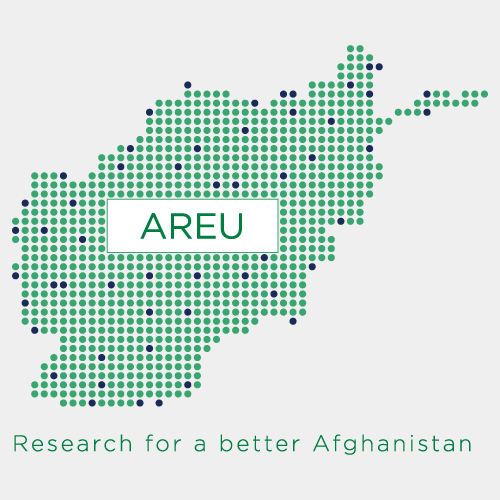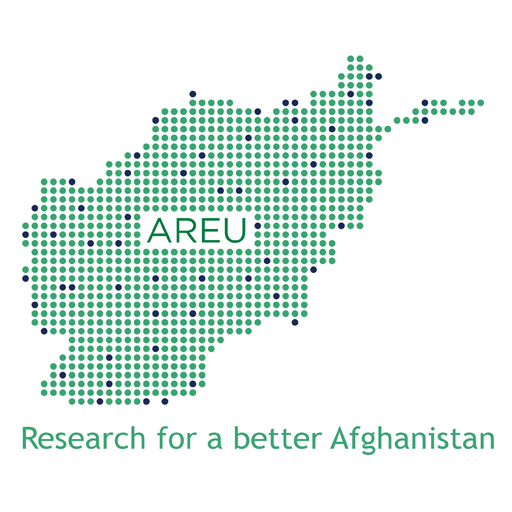
01 Jun Consultant
AREU Background
The Afghanistan Research and Evaluation Unit (AREU) is a Kabul-based independent research think tank established in 2002 with the assistance of the international community in Afghanistan. AREU’s mission is to inform policy and practice by conducting high-quality, evidence-based research and actively disseminating the results, and to promote a culture of research and learning. More information about AREU and the work it does can be found on its website www.areu.org.af
Project Background
The scale of food insecurity in Afghanistan has risen dramatically since August 2021. As of January 2022, 95% of Afghans are facing insufficient food consumption as compared to 81% prior to August 2021. Currently, more than half the Afghan population faces crisis (IPC Phase 3) or emergency (IPC Phase 4) levels of food insecurity. This is the highest number of acutely food insecure people ever recorded in the country. Economic collapse, rise in food prices and inflation, and drought are the key drivers of hunger in the country. They have worsened the already precarious food security situation of rural Afghans and contributed to internal displacement. Meanwhile, many cohorts of Afghans facing food insecurity for the first time. The effects of food insecurity are exacerbated by poor access to health services, particularly in rural areas.
In this context, the health and nutrition status of women (particularly Pregnant and Lactating Women) and children under five years of age are of concern. Although updated data is limited, the Nutrition Cluster estimated 4.7 million children and PLW need life-saving treatment for acute malnutrition. Twenty-eight of 32 provinces in the country have global acute malnutrition prevalence above 10 percent, which is a high prevalence according to the World Health Organization benchmark. While ensuring adequate access to services to treat acute malnutrition is essential as a life-saving measure, there is a clear need to prevent children and women from becoming malnourished in the first place. Measures proven to prevent malnutrition and enhance maternal and child health include micronutrient supplementation and weight gain during pregnancy, early initiation of breastfeeding, exclusive breastfeeding (EBF) for six months, and safe complementary feeding thereafter.
Availability and affordability of nutrient rich foods for families are major constraints to adopting these measures; especially when considering that the cost of meeting nutrient requirements is generally highest for adolescent girls and PLWs within households. Unfortunately, given the scale of food insecurity, many Afghan families have restricted access to the nutritional resources needed to support PLW and infant young child (IYC) health. In June 2021, the Fill the Nutrient Gap (FNG) report for Afghanistan found that 88% of the population are unable to afford a nutritious diet, with a nutritious diet costing on average three times more than a nutrient poor high energy diet. Recent WFP data shows that since August 2021, Afghan families have on average dramatically reduced their intake of nutritious foods in favor of high-energy staples such as cereals (wheat and rice). Average household consumption of proteins has halved in the past six months, and consumption of fruits and dairy have more than halved.
While the food insecurity situation in Afghanistan is alarming, there is still scope to address mother and child malnutrition through interventions that extend beyond provision of food and dietary supplements. Data available prior to November – March 2021 – when food insecurity was also extremely high – indicated that infant and young child feeding (IYCF) practices were generally sub-optimal in Afghanistan, with scope for improvement to attain better nutrition outcomes. In 2020, WFP commissioned formative research on stunting prevention in Badakhshan province, to assess the dietary behaviors of mothers in the 1000 days of a child’s birth. The baseline findings including wide-spread negative practices such as wide-spread use of pre-lacteal and post-lacteal feeds, owing to myths and misconceptions around nutrition and power dynamics within the home.
Objectives of the Research:
This research – funded by a joint partnership of the United Nations’ World Food Program and World Bank - Afghanistan – aims to understand the barriers and enablers of optimum dietary behaviors for PLWs (adult and adolescent), and children under 5, and infants from 0 to 24 months. The findings are expected to inform Social Behavioral Change (SBC) strategies in Afghanistan. The research has the following objectives:
-
- What are the current knowledge, attitudes, and practices (KAP) of the target audience and key influencers related to maternal nutrition and IYCF – types of food consumed (meal frequency etc.), food preparation?
- What are the behaviours and family/social norms/taboos related to food that prohibit the proper dietary intake for the target audience?
- How are disclosures around pregnancy and lactation status managed at the household and community level – who is informed and when (including but not limited to, key decision makers/budget holders in the HH, healthcare workers)?
- What are the key barriers healthcare workers face in communicating and on boarding PLW and households to beneficial practices? This question should take into factors specific to beneficiaries and said healthcare workers, to inform SBC strategies for both.
- Outside of the household and community, what are the trusted/preferred sources of information on maternal nutrition and IYCF practices, if any (e.g., media, health-care workers, internet etc.), and which are available?
Duties and Responsibilities:
In addition to specific responsibilities outlined below, the consultant will perform tasks that provide intellectual and program support to AREU’s Research Department, including identifying potential further related research and communication opportunities.
Specific Responsibilities (A)
-
- Design and develop methodology that effectively and efficiently support data collection and data collection instruments, including providing inputs on the research tools provided by the project’s donor and on the codebook produced by the AREU research team.
- Perform quality assurance and maintain quality control of the data collection and other related research information.
- Performing literature review and analysis of the primary data pertaining to Social Behavioural Change Interventions to Promote Mother and Child Nutrition research activities.
- Ensuring research findings and write-ups meet the needs of AREU’s target audiences, particularly policy-makers, donors, and development practitioners.
- Communicating relevant research findings at relevant meetings with external actors (government, UN, donors, NGOs, academia, and media).
Specific Responsibilities (B)
This consultancy project has three writing responsibilities as follow:
-
- Reviewing, revising, and finalizing an inception report produced already by AREU Research Department, on “the barriers and enablers of optimum dietary behaviours of pregnant and lactating women, children under five, and infants.â€
- Writing a final study report based on the inception report, literature review, and primary data analysis.
- Writing a brief 5 to 10 page policy note for AREU based on the inception and final reports of the research.
Reporting Line and Supervision
The consultant will directly work with AREU Research Manager, Research Officers, and Research Assistants, under the supervision of AREU Director.
Minimum Qualifications
-
- Master’s degree in relevant field of study such as nutrition studies, medical studies, sociology, and other related fields.
- 5 or more years of research experience especially in dietetics and nutrition studies and programs related to human nutrition, maternal and child nutrition, and overall principles and practices of public health and individual family food problems.
- Excellent English language writing and reporting skills especially writing for and communicating with an audience of national and international policy makers and practitioners.
Salary and Benefits
The salary for this position is competitive and will be determined commensurate with experience, taking into consideration AREU’s overall salary scales.
Job Location
Remotely.
How to apply:
Please apply by sending a CV/resume, a cover letter, and a writing sample/publication to  [email protected].The subject title of your email should be “AREU Consultant.†Closing date for receiving the applications is 15 June, 2023. Only short-listed candidates will be contacted. Women are highly encouraged to apply.

